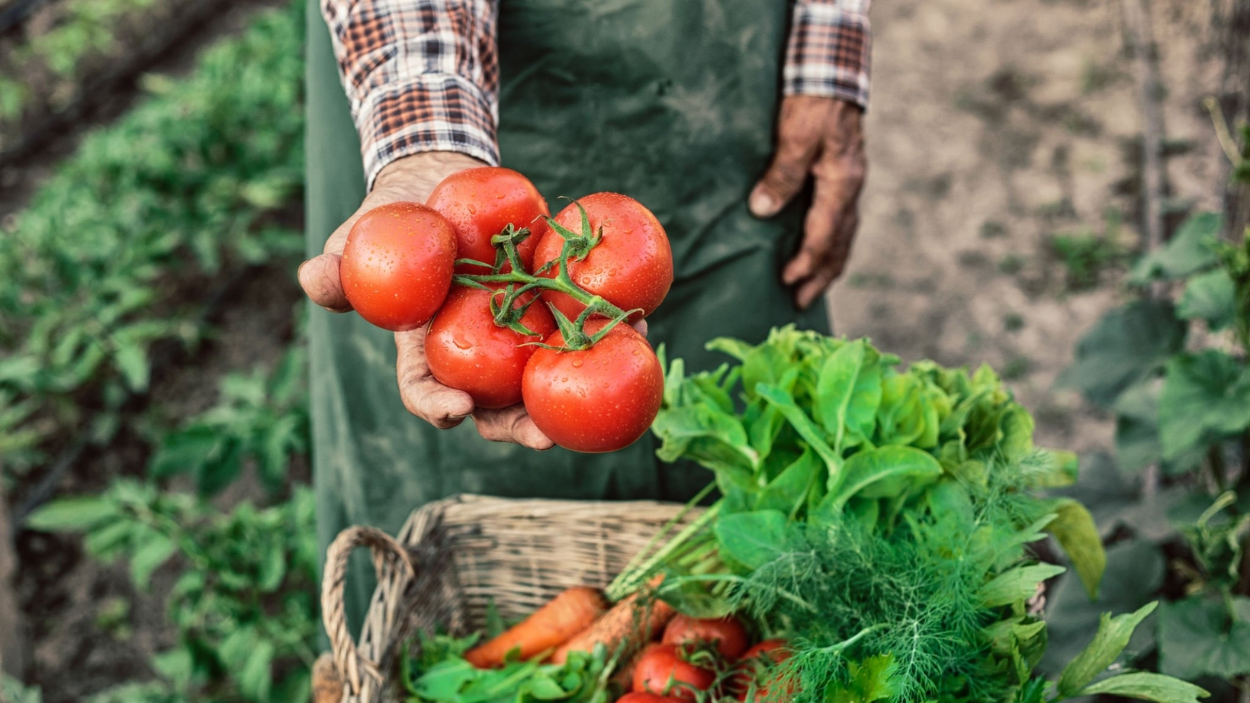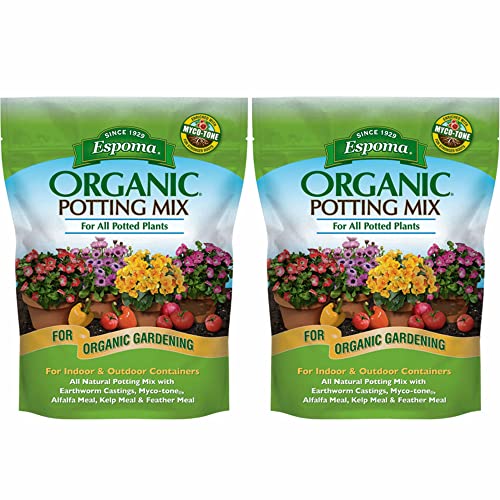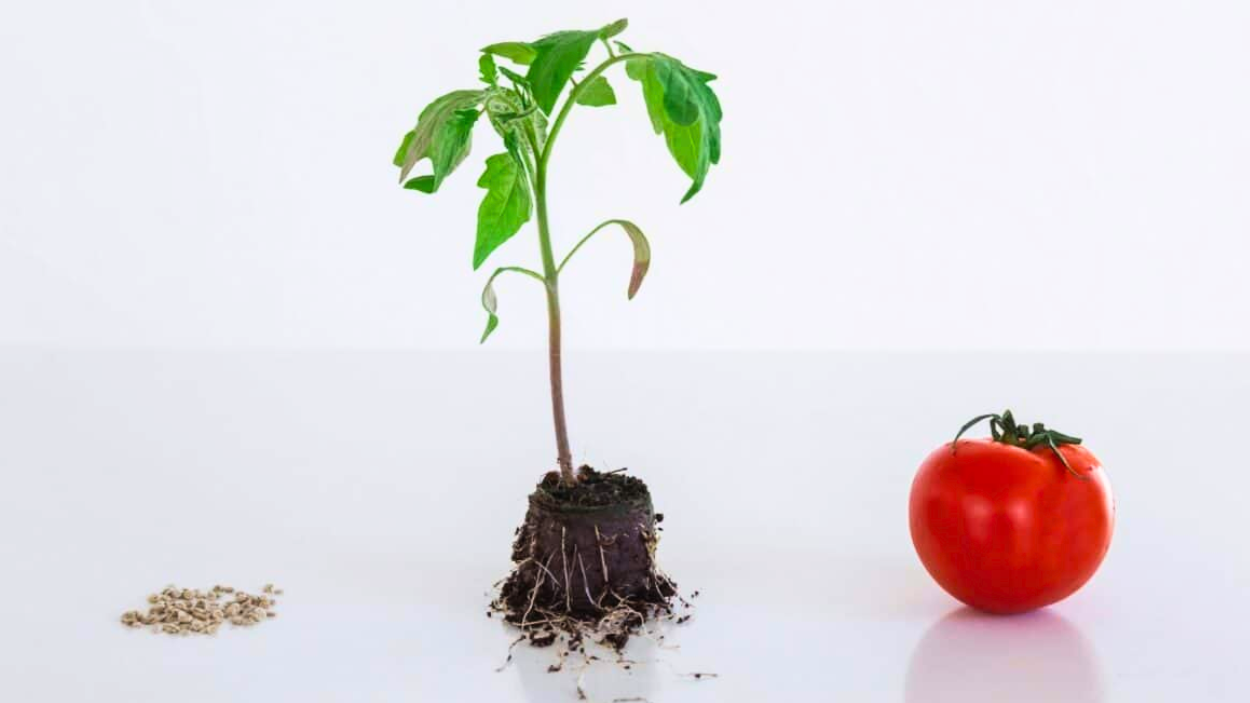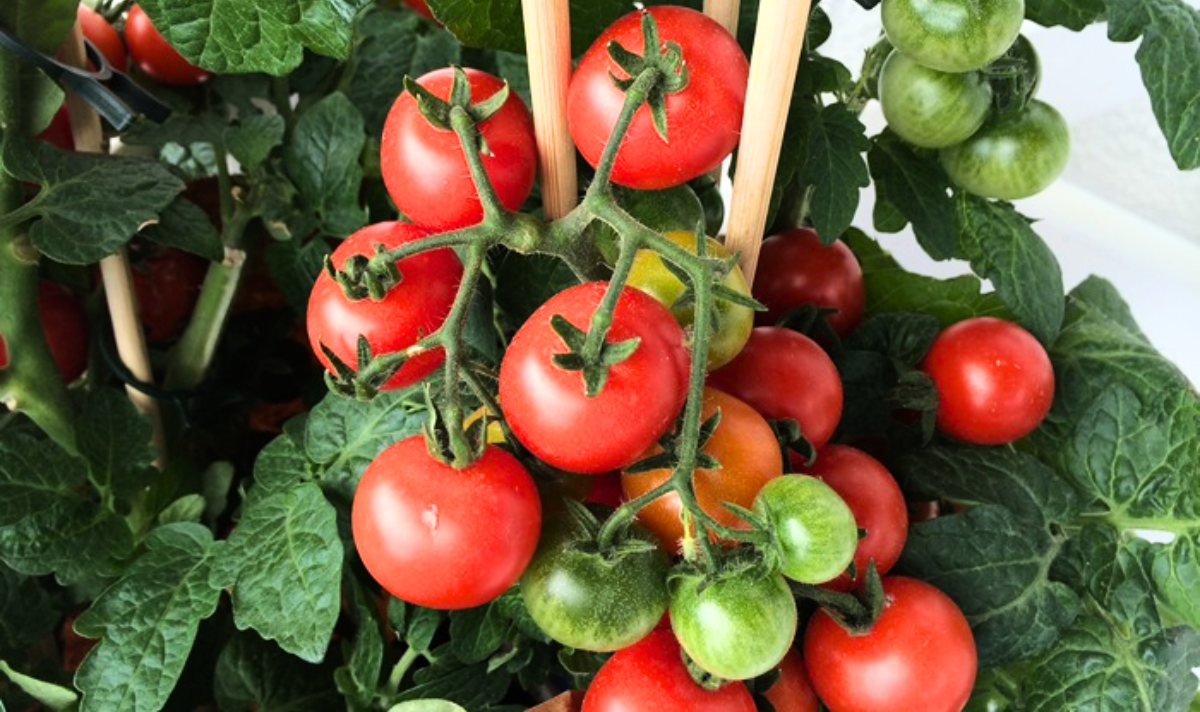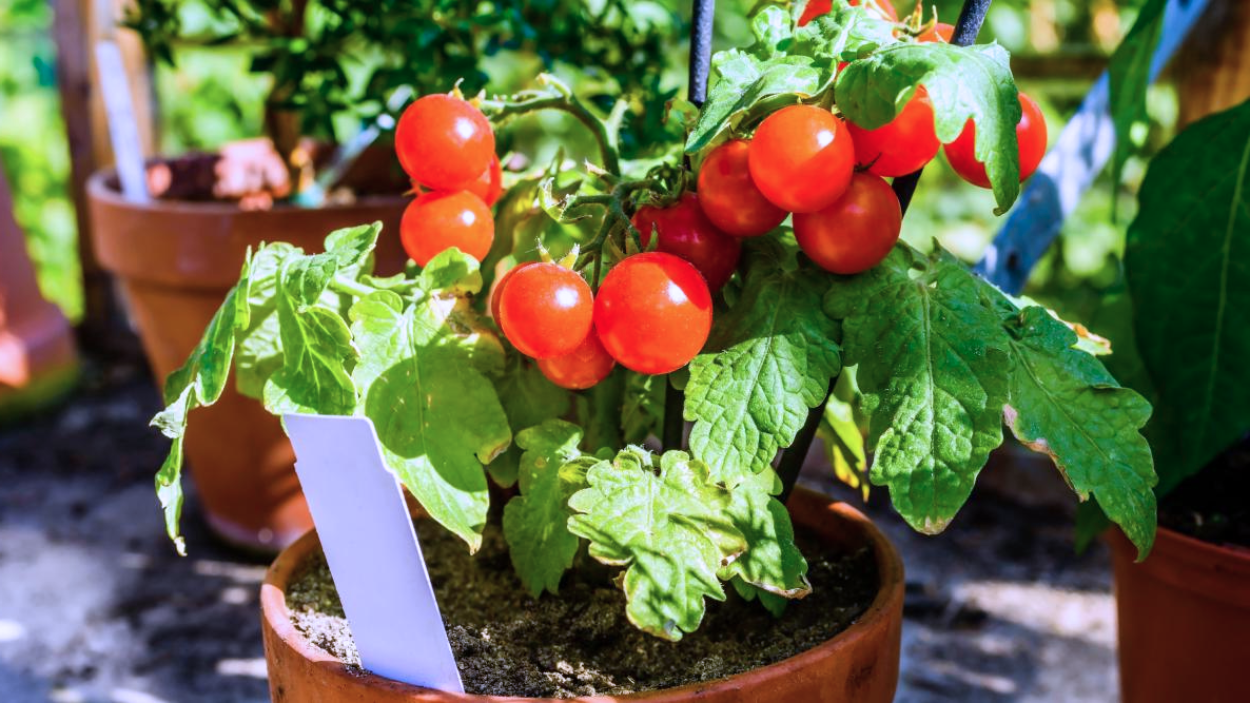One of the most common veggies to cultivate in a backyard garden is tomatoes. But choosing the proper soil can be difficult, particularly for novice gardeners. In this article, we'll provide you with a comprehensive guide to choosing the best soil for your tomatoes. We'll cover the different types of soil, amendments, and fertilizers you can use to ensure your tomatoes grow healthy and flavorful.
What Factor to Consider to Choose the Best Soil for Tomatoes
1. Soil type
The term "soil type" describes how soil is categorized according to its physical and chemical characteristics. The three major soil types are sandy, clay, and loam. Sandy soil is perfect for plants that are prone to root rot since it contains large particles and drains quickly. Clay soil has small, closely packed particles that are good at retaining moisture and nutrients but bad at draining. Sand, silt, and clay make up loam soil, which is regarded as the best soil type for growing plants since it drains well and holds onto moisture and nutrients.
2. PH level
The soil's acidity or alkalinity is determined by the pH level. The pH scale runs from 0 to 14, with 7 being neutral, anything less than that being acidic, and anything more than that being alkaline. The pH of the soil should be slightly acidic and neutral for most plants to thrive. The best soil pH range for tomatoes is between 6.0 and 6.8, which is mildly acidic. The availability of nutrients to plants can be impacted by a soil pH that is either too high or too low.
3. Nutrient content
The term "nutrient content" describes the quantity and accessibility of vital plant nutrients, such as nitrogen, phosphorus, and potassium, in the soil. To promote growth, development, and fruit production, plants need a lot of these macronutrients. In addition to these fundamental nutrients, soil also contains micronutrients like iron, zinc, and copper, as well as secondary nutrients like calcium, magnesium, and sulfur.
Our Suggestions
We have identified a handful of the greatest possibilities for you after conducting research and evaluating the various choices.
Miracle-Gro Garden Soil All Purpose
GARDENERA Premium Organic Potting Soil for Tomatoes
Espoma Organic Potting Soil Mix
Coast of Maine Organic Tomato and Vegetable Planting Soil
In-Depth Reviews Best Soil for Tomatoes
1. Miracle-Gro Garden Soil All Purpose
Many gardeners who wish to enhance the quality of their soil for producing vegetables and other plants use Miracle-Gro Garden Soil All Purpose. Composted bark, peat moss, and other organic materials are combined to create this soil, which is a rich source of organic matter and nutrients.
Product Summary:
Advantage | Disadvantage |
|
|
Miracle-Gro plant food is also added to the soil to improve the health of the plants and increase fruit and vegetable production. For container gardening, Miracle-Gro Garden Soil All Purpose can be used either alone or in combination with your existing soil.
Product Information:
Brand | Miracle-Gro |
Style | All-Purpose |
Item Weight | 36.13 Pounds |
2. GARDENERA Premium Organic Potting Soil for Tomatoes
A premium soil blends especially created for growing tomatoes is called GARDENERA Premium Organic Potting Soil for Tomatoes.
Product Summary:
Advantage | Disadvantage |
|
|
The fact that GARDENERA Premium Organic Potting Soil for Tomatoes is free of synthetic fertilizers, pesticides, and other dangerous chemicals is one of its main advantages. For gardeners who wish to grow tomatoes without exposing themselves or their families to dangerous pesticides, this makes it a fantastic option. Additionally, the pH of the soil has been adjusted to the ideal range for growing tomatoes, which helps enhance nutrient uptake and plant growth.
Product Information:
Brand | Gardenera |
Style | TOMATO Potting Mix |
Item Weight | 11.3 ounces |
3. Espoma Organic Potting Soil Mix
Growing plants in containers or raised beds are made possible by the excellent drainage, aeration, and nutrient content of Espoma Organic Potting Soil Mix. Strong plant development and fruit production can be encouraged by the soil's combination of nutrient-rich organic components, and the pH-balanced composition can enable effective nutrient uptake.
Product Summary:
Advantage | Disadvantage |
|
|
Espoma Organic Potting Soil Mix is a fantastic option for gardeners who wish to cultivate healthy, tasty plants without sacrificing on the environment or human health thanks to its high-quality components and organic composition.
Product Information:
Brand | Espoma |
Style | Peat Moss, Potting Soil Mix, Planting Soil |
Item Weight | 9.75 pounds |
4. Coast of Maine Organic Tomato and Vegetable Planting Soil
Organic tomato and vegetable planting along the Maine coast Composted salmon, blueberries, lobster, and cow manure are just a few examples of the organic components that go into making soil.
Product Summary:
Advantage | Disadvantage |
|
|
These things give the soil a rich source of nutrients and organic matter. Mycorrhizae, which are helpful fungi that aid plants in more effectively absorbing nutrients from the soil, have also been added to the soil to improve its quality. Additionally, the pH of the soil has been adjusted to the ideal range for growing tomatoes, which helps enhance nutrient uptake and plant growth.
Product Information:
Brand | Coast of Maine |
Style | Peat Moss, Planting Soil, Soil Mix, Potting, Garden |
Item Weight | 41.727 pounds |
Frequently Asked Questions
Can I use regular garden soil for growing tomatoes?
While you can grow tomatoes in standard garden soil, it might not be the ideal choice. The optimum texture, nutrient level, and drainage characteristics that tomatoes require to develop healthily and produce excellent fruits may not be present in regular garden soil. To increase soil structure and nutrient content, if you decide to utilize standard garden soil, it's crucial to supplement it with organic matter like compost, aged manure, or peat moss.
Can I use potting soil for growing tomatoes?
Yes, you can grow tomatoes in potting soil. Growing tomatoes in pots or raised beds with high-quality potting soil can be a great choice. For the best texture, drainage, and nutrient content while growing plants in containers, potting soil is carefully designed.
How often should I fertilize my tomato plants?
It is preferable to treat your tomato plants with a balanced organic fertilizer or compost tea every three to four weeks. Overfertilizing should be avoided as it can result in excessive leaf growth and decreased fruit production.
Final Thought
Choosing the best soil for your tomatoes is crucial for ensuring healthy and flavorful plants. When selecting soil, consider factors such as soil type, pH level, nutrient content, and amendments. You may have a plentiful harvest of delectable tomatoes all season long by selecting the correct soil, supplementing it with organic matter, and fertilizing your plants frequently.
